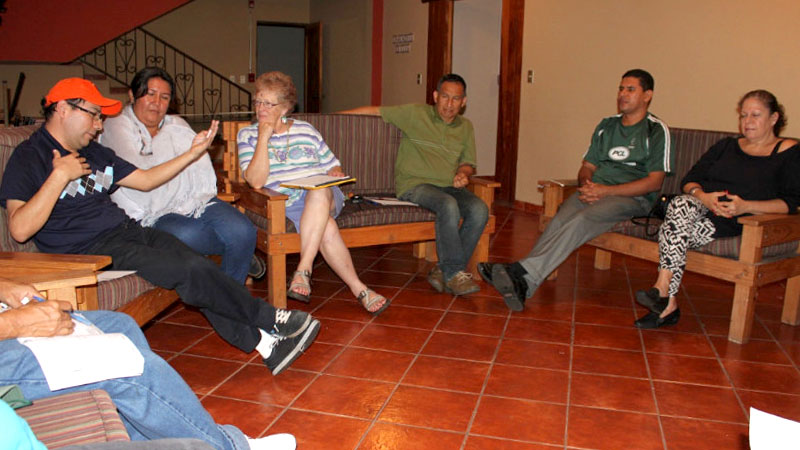- Olga, a nun who has been working in the favelas (slums) of Brazil, spoke of the constant need to nurture our spirits with a deep relationship with God in order fill us with God’s love, forgiveness, hope, and a sense of identity. Only then can we share with others.
- From his experience in the “new towns” (slums) of Lima, Macoy shared his conviction, developed in his thesis, that a transforming Christian education can empower people to be critical thinkers, resilient, able to make wise decisions and to unite in solidarity to change their negative situations.
- Viviana shared the work of Christian peacemakers in Colombia, in the midst of a civil war, building bridges and healing wounds from the physical, emotional, and spiritual violence. They proclaim a God of peace who opposes all violence, and teach alternative ways of resolving conflict.
- Direct action against the structures of violence can be very dangerous. But simple actions can be acts of protest. Sonia shared how, in Guatemala, where one of the casualties of war has been the breakdown of trust, Christians break through the mistrust to show compassion and build bonds, collecting food and donations for the widows in the neighborhood.
- Salvation is for the hopeless and the suffering. The group shared stories of serving children living on the streets, convicted prisoners, trafficked women, marginalized groups, proclaiming to them life and hope.
- Salvation is personal but also social, and includes the struggle for justice of the Indigenous peoples of Latin America, whose ancestral lands have been stolen and their people marginalized. Christians raise their voices to proclaim a God of justice.
- Salvation is for all people, and is not the private possession of any one group. In Colombia, a group of Christians unites many different denominations around a common interest in Bible study.
- Salvation is not judgment but love, not condemnation but forgiveness. It is not based on a moralistic obsession with who is “in” or “out” but on acceptance and radical hospitality.
I hope you are as inspired as I was to listen to these committed and visionary Christian leaders.
In Christ, |
